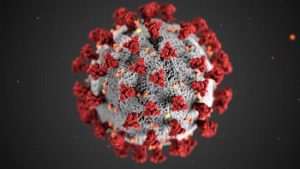This is the Spanish language translation of FSHN20-25/FS366, Handling COVID-19: Best Practices for Agribusiness. This material is adapted from the version published at https://foodsafety.ces.ncsu.edu/covid-19-resources/. Written by Tom Maddox and Laurel Dunn (University of Georgia) and published by the UF/IFAS Food Science and Human Nutrition Department.
https://edis.ifas.ufl.edu/fs395
Tag: Laurel Dunn
Manejo del COVID-19: Granjas de frutas y verduras, y empacadoras
This is the Spanish language translation of FSHN20-25/FS366, Handling COVID-19: Produce Farms and Packinghouses. This material is adapted from the version published at https://foodsafety.ces.ncsu.edu/covid-19-resources/. Written by Laurel Dunn and published by the UF/IFAS Food Science and Human Nutrition Department.
https://edis.ifas.ufl.edu/fs394
Jere COVID-19: Pwodwi jaden ak izin anbalaj yo
Pandan ke pa gen prèv ki asosye viris COVID-19 la a yon pwoblèm sekirite alimantè, li se yon pwoblèm sante pou travayè yo paske li pwopaje l pa kontak moun ak moun oswa lè w manyen yon sifas ki kontamine. Manje pa parèt tankou yon kòz ki favorize transmisyon COVID-19 la, men menm pratik yo itilize pou evite maladi ou ka pran nan manje, menm pratik sa yo ta dwe itilize pou diminye chans kontaminasyon COVID-19 la nan nan pwodwi alimentè ki fre yo epi risk pou COVID-19 ta simaye l pami travayè agrikòl yo ak sa kap travay nan izin anbalaj yo.
This new 2-page publication of the UF/IFAS Food Science and Human Nutrition Department is the Haitian Creole translation of FSHN20-25, Handling COVID-19: Produce Farms and Packinghouses. Written by Laurel Dunn (UGA) and translated by Emmanuel Duvalsaint.
https://edis.ifas.ufl.edu/fs385
Jere COVID-19 : Pi bon Pratik pou Agribiznis
COVID-19 simaye l sitou pa kontak dirèk moun ak moun, oswa si pandan yon moun ap touse oubyen pale postiyon krache a ki deja gen viris la kontamine yon sifas epi yon moun ki ansante manyen kote sa a. Pandan ke pifò magazen manje ak ekipman kontinye fonksyone pandan maladi a ap simaye ak lòt ijans, kèk mezi prevantif ka pran pou pwoteje sante anplwaye yo ak kliyan yo.
This new 2-page publication of the UF/IFAS Food Science and Human Nutrition Department is the Haitian Creole translation of FSHN20-27, Handling COVID-19: Best Practices for Agribusiness. Written by Tom Maddox and Laurel Dunn (both of the University of Georgia) and translated by Emmanuel Duvalsaint.
https://edis.ifas.ufl.edu/fs381
Handling COVID-19: Best Practices for Agribusiness
COVID-19 is spread primarily via close person-to-person contact, or when virus-containing droplets expelled during coughing or talking contaminate a surface that is later touched by a healthy individual. While most feed and supply stores continue to operate during disease outbreaks and other emergencies, preventive steps can be taken to protect the health of employees and customers. The original version of this flyer was published at https://foodsafety.ces.ncsu.edu/covid-19-resources/. Written by Tom Maddox and Laurel Dunn (University of Georgia) and published by the UF/IFAS Food Science and Human Nutrition Department.
https://edis.ifas.ufl.edu/fs369
Handling COVID-19: Produce Farms and Packinghouses
While there is no evidence that the COVID-19 virus is a food safety concern, it is a worker health concern because it spreads via close person-to-person contact or by contact with contaminated surfaces. Food does not appear to be a likely cause of COVID-19 transmission, but many of the same practices used to prevent foodborne illness on foods should still be used to reduce the likelihood of COVID-19 contamination on fresh produce and the risk of COVID-19 spread among farm and packinghouse workers. This material is adapted from the version published at https://foodsafety.ces.ncsu.edu/covid-19-resources/. Written by Laurel Dunn and published by the UF/IFAS Food Science and Human Nutrition Department; 2 pages.
https://edis.ifas.ufl.edu/fs366

